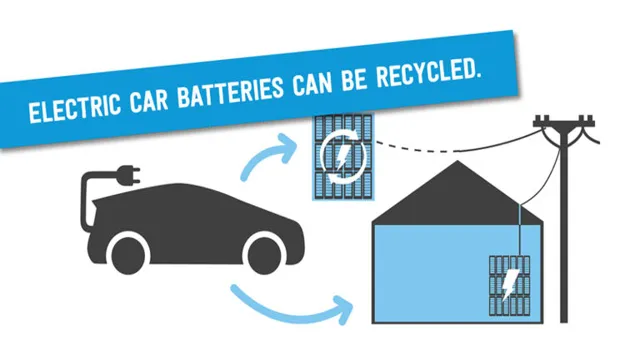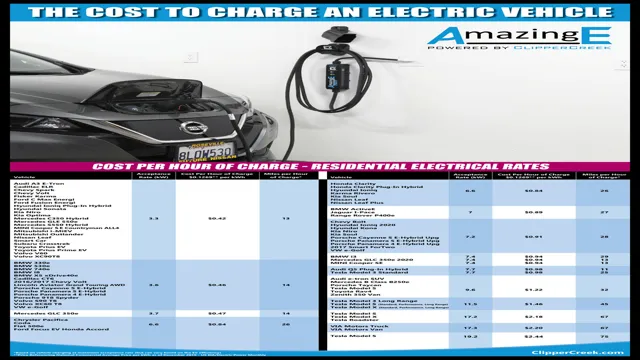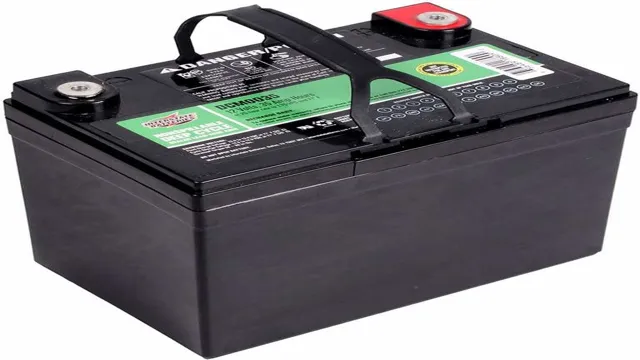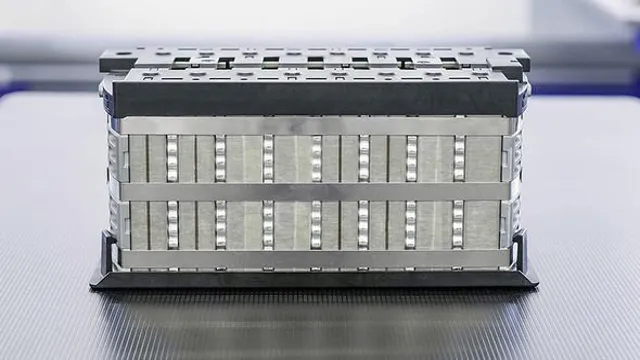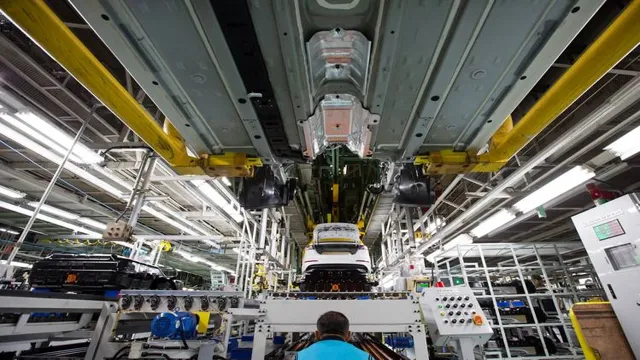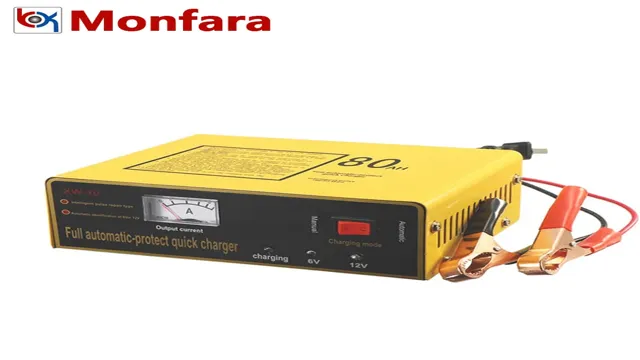Revolutionizing Sustainability: The Power of Electric Car Battery Recycling in New Zealand
Electric cars are fast becoming a popular way to reduce carbon emissions and save on fuel costs. But what happens to the batteries once they wear out? This is where electric car battery recycling in NZ comes in. Recycling these batteries is an important way to reduce e-waste and ensure the valuable materials used in them can be used again.
With more and more electric vehicles hitting the roads in New Zealand, the need for effective and efficient recycling methods for these batteries is growing. In this blog, we will explore the ins and outs of electric car battery recycling in NZ, discussing the benefits, challenges, and current state of recycling efforts in the country. So, buckle up and let’s dive in!
Understanding Electric Car Batteries
Electric car battery recycling in NZ is an important topic to consider in the current climate. As more people begin to switch to electric vehicles in an effort to reduce their carbon footprint, the issue of what to do with old or worn-out batteries becomes increasingly pressing. While electric car batteries can last for years, eventually they will need to be replaced or recycled.
In New Zealand, there are a few options for recycling these batteries, including sending them to specialized recycling facilities or repurposing them for other uses. It’s important to consider the environmental impact of these options and make a plan for proper disposal and recycling of old electric car batteries. By doing so, we can continue to reduce our impact on the planet and make a positive contribution to a sustainable future.
Composition of Electric Car Batteries
Electric car batteries are complex systems that consist of several components such as the cathode, anode, electrolyte, and separator. The cathode and anode are made up of different metal oxides and carbon, respectively. These materials function to store and release electricity during the charging and driving routines.
The electrolyte is a liquid or gel substance that transports ions between the anode and cathode, allowing the chemical reaction to take place. Meanwhile, the separator serves as a physical barrier that prevents short circuits. Furthermore, batteries designed for electric vehicles have higher energy density, meaning it can hold more power that can propel the vehicle for a farther distance.
Thus, a popular battery technology for today’s EVs is lithium-ion batteries, which have a solid-state electrolyte that allows for faster charging, higher efficiency, and longer lifespan.
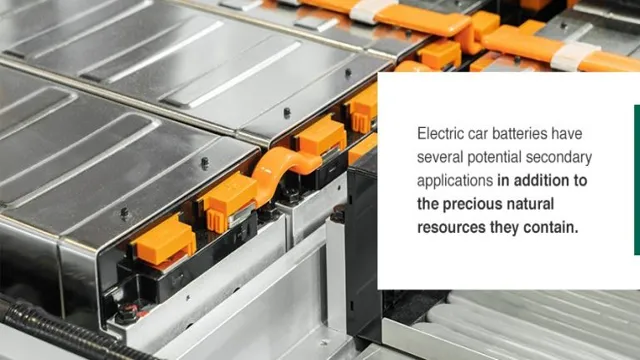
Lifespan and Disposal of Electric Car Batteries
Electric car batteries have a lifespan and disposal process that differs slightly from traditional combustion engine vehicles. Typically, electric car batteries can last anywhere from 8 to 10 years with proper care and maintenance. However, after this lifespan, the batteries can still hold up to 70-80% of their original charge capacity and can be used in other applications such as home energy storage or renewable energy sources.
When it comes to disposal, electric car batteries are recycled to ensure that their valuable metals and materials can be repurposed, reducing the environmental impact of the battery’s end-of-life disposal. Some manufacturers even incentivize the return of old batteries through their own take-back programs. Ultimately, proper care and disposal of electric car batteries can have a significant impact on reducing waste and preserving valuable resources for the future.
Recycling Electric Car Batteries in NZ
Electric car battery recycling in NZ is becoming increasingly important as the use of electric vehicles continues to grow. Currently, there are several companies in NZ that are working on ways to recycle electric car batteries. Some of these companies are focusing on repurposing the batteries for other uses such as energy storage systems for homes and businesses.
Others are looking into ways to extract materials from the batteries that can be reused in new batteries. One of the main challenges in the recycling process is the complexity of the batteries themselves. They contain multiple components that can be hazardous if not treated properly.
However, with the commitment of these companies and the support of the government, it is hoped that electric car battery recycling can become a viable and sustainable industry in NZ.
Current State of Electric Car Battery Recycling in NZ
As electric cars become more popular in New Zealand, the issue of what to do with their batteries after they are no longer useful has become more pressing. Currently, there are only a few places in NZ that accept electric car batteries for recycling, and the process can be quite expensive. While some companies are taking steps to recycle these batteries more efficiently, there is still a long way to go before the process becomes cost-effective and widespread.
However, with the growing popularity of electric cars, it is essential that we find a sustainable way to recycle their batteries, or we risk facing a significant environmental problem in the future. It’s important for individuals, companies, and the government to work together to find solutions to recycle these batteries efficiently and sustainably. Only then can we ensure that the benefits of electric cars do not come at the cost of our planet.
Importance of Recycling Electric Car Batteries
recycling electric car batteries When it comes to the environment, there’s always something we can do to help. One way we can make a difference is by recycling electric car batteries. These batteries, although helpful in reducing carbon emissions, can actually be harmful to the environment if they’re not disposed of properly.
Fortunately, New Zealand has a number of facilities that specialize in recycling electric car batteries. By recycling, we’re able to recover valuable materials like lithium, cobalt, and nickel, which can then be used to make new batteries. Additionally, recycling helps minimize the amount of waste that ends up in landfills, reducing the impact on the environment and helping to preserve it for future generations.
So, if you have an electric car battery that you need to dispose of, make sure you take it to a recycling facility to ensure it’s properly handled and that its components can be repurposed for good use.
Recycling Process and Technologies Used in NZ
Recycling electric car batteries is an important process that helps reduce waste and support sustainability efforts. In New Zealand, there are a few technologies used to recycle these batteries. One method is called pyrometallurgical recycling, where the battery is heated to high temperatures and the metals are extracted.
Another method is called hydrometallurgical recycling, which involves dissolving the metals in a solution and then extracting them. Both methods have their advantages and disadvantages, but they are effective in recycling the materials in the batteries. Recycling electric car batteries not only supports environmental efforts but also helps reduce the demand for mining new materials, making it a crucial step towards a greener future.
Benefits of Electric Car Battery Recycling in NZ
Electric car battery recycling in NZ is becoming increasingly important as more and more people turn to electric vehicles as a sustainable mode of transportation. There are several benefits of recycling these batteries, including reducing waste and environmental impact, conserving resources, and reducing the costs of manufacturing new batteries. Recycling also creates new job opportunities and helps reduce the country’s dependence on imported raw materials.
The process involves disassembling the battery, separating the materials, and repurposing them for new applications. While there are still challenges to overcome, such as ensuring proper handling and disposal of toxic materials, electric car battery recycling in NZ is a vital step towards a more sustainable future.
Environmental Benefits
One of the main environmental benefits of electric car battery recycling in NZ is reducing the amount of hazardous waste that ends up in landfills or pollutes waterways. When these batteries are not properly disposed of, they can release toxic chemicals and heavy metals into the environment. However, with recycling, those materials can be extracted and used again, reducing the need to mine new resources.
Not only does this lower the environmental impact of mining and processing, but it also reduces the amount of greenhouse gases released during the production of new batteries. By recycling electric car batteries, we can reduce our carbon footprint and create a more sustainable future for everyone.
Economic Benefits
Electric car battery recycling in NZ brings a host of economic benefits. By recovering valuable metals and components from old batteries, recycling facilities can turn waste into a valuable resource, creating new opportunities for businesses and jobs. Not only does this reduce the need for environmentally damaging new mining, but it also helps to mitigate supply chain risks and improve the stability of the local industry.
Additionally, recycling batteries reduces the amount of waste sent to landfills and saves on the cost of importing new materials from abroad. Overall, electric car battery recycling in NZ creates a more sustainable and economically efficient system that benefits businesses and the environment alike.
Conclusion – Sustainable Solutions for Electric Car Batteries
In conclusion, electric car battery recycling in New Zealand is not only a responsible choice for the environment but also a promising economic opportunity. By reclaiming valuable metals and materials from used batteries, we can reduce waste and contribute to a more sustainable future. And let’s face it, who doesn’t want to feel like an eco-friendly superhero while cruising around in their sleek electric ride? So, let’s charge up our batteries and drive towards a cleaner, greener tomorrow!”
FAQs
What is electric car battery recycling?
Electric car battery recycling is the process of collecting and reusing used batteries to reduce waste and prevent harmful chemicals from entering the environment.
Why is electric car battery recycling important?
Electric car battery recycling is important because batteries contain harmful chemicals that can be released into the environment if not disposed of properly. Recycling also reduces the need for the mining of new raw materials.
How is electric car battery recycling done in New Zealand?
In New Zealand, electric car battery recycling is done by companies such as Ecotech Services and Battery Rescue, which collect and process used batteries for reuse or disposal.
What are the benefits of electric car battery recycling in New Zealand?
The benefits of electric car battery recycling in New Zealand include reducing waste, minimizing the environmental impact of battery disposal, and conserving raw materials. Recycling also creates new jobs and economic opportunities in the recycling industry.
